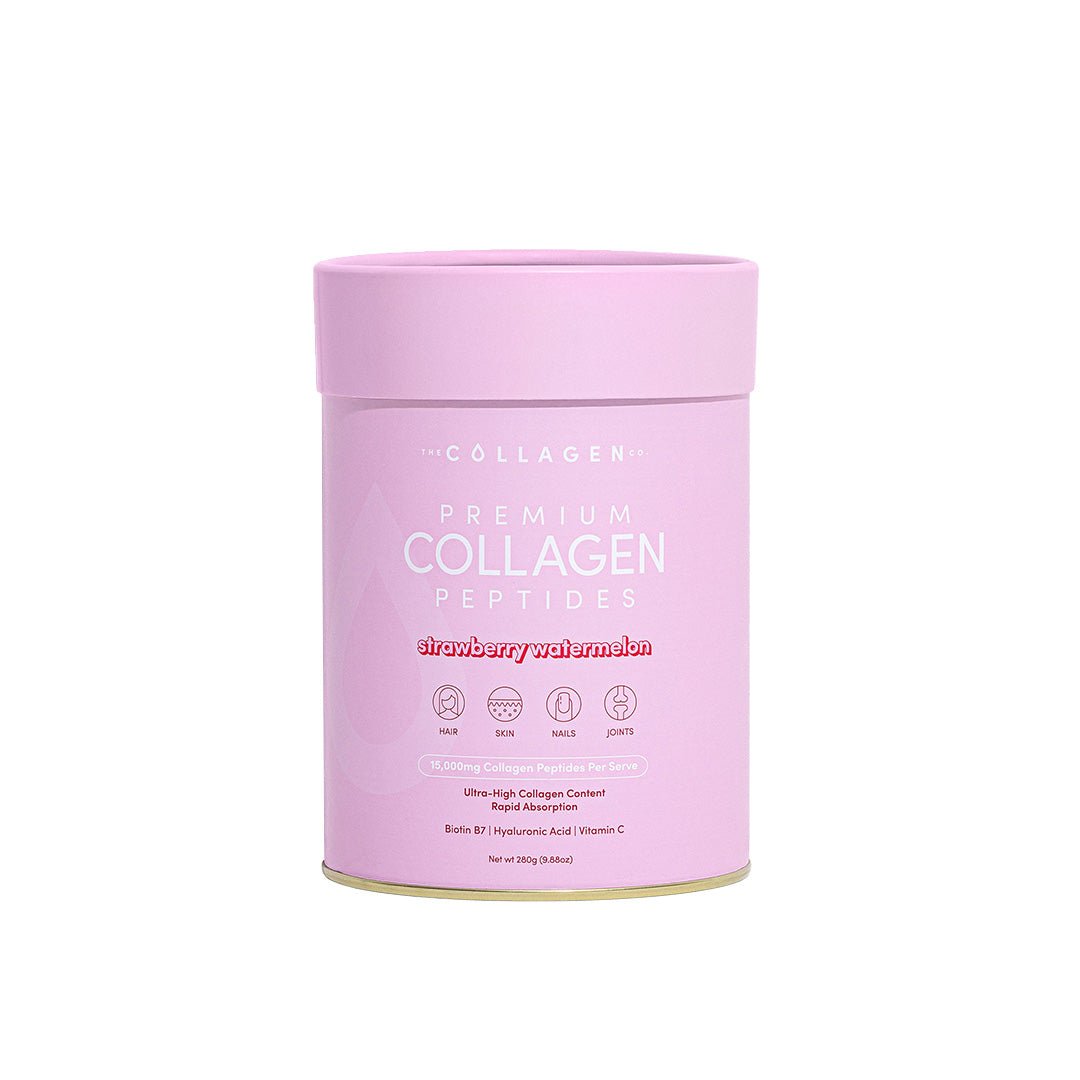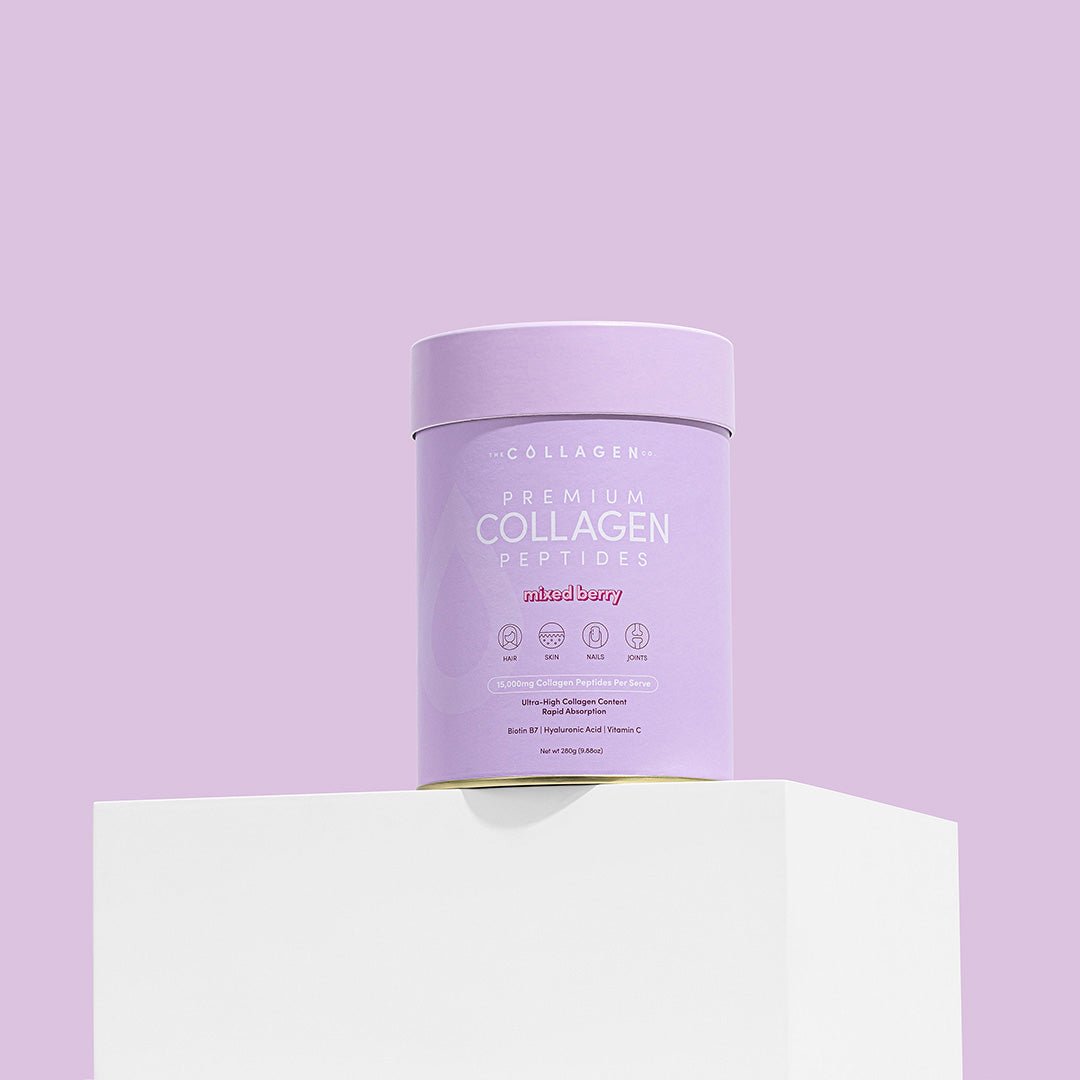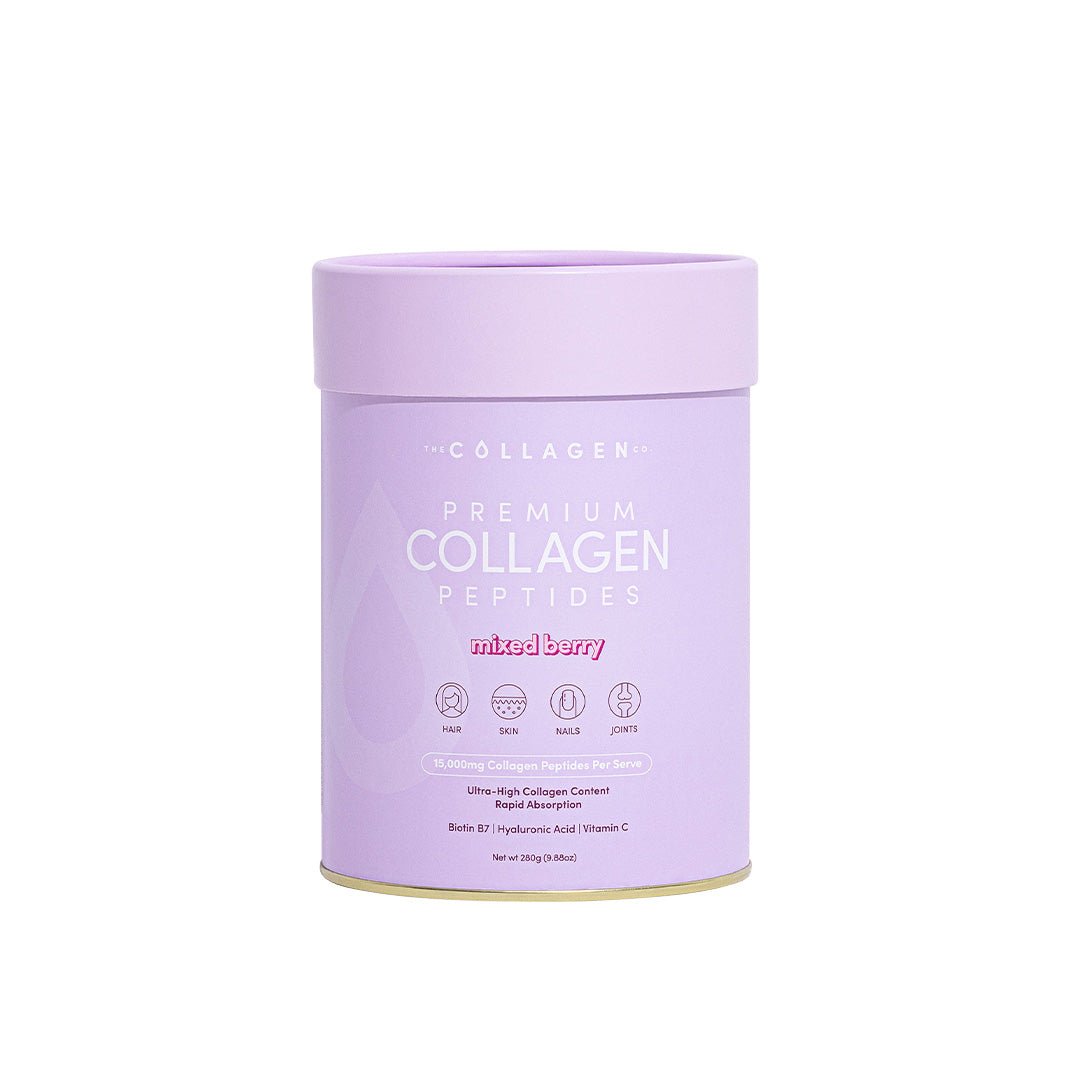Comparative Analysis of Collagen vs. Glucosamine for Joint Health
Posted 2nd October 2024

In your hunt for a joint health supplement that’ll (hopefully) keep those creaking in your knee or hip away, you’ll see just 2 ingredients popping up repeatedly. Collagen and glucosamine.
Which should you pick? Or, actually, do you even have to pick at all? Here’s a comparative analysis of collagen vs. glucosamine to help you out.
What is collagen? What is glucosamine?
Collagen is one of the most abundant proteins in the body.
It’s the main structural protein that forms the connective tissue throughout your body, from skin to bones, muscles, tendons, and, yes, of course, joints. More specifically, collagen makes up approximately 60% of the dry weight of adult articular cartilage.
For those wondering, articular cartilage is a flexible connective tissue covering the ends of your bones, which come together to form joints.
Articular cartilage is smooth and slippery — allowing your bones to glide over each other with very little friction. When damaged (e.g., due to trauma, such as an accident, or through progressive degeneration or ‘wear and tear’), the bone ends may end up rubbing together, causing severe pain, inflammation, and some degree of disability.
Glucosamine is also closely related to cartilage health.
It’s a naturally occurring amino sugar (sciencey detail: amino sugars are sugars in which 1 or more hydroxyl groups are replaced by an amino group) that is a fundamental building block of glycosaminoglycans.
As one of the structural components found in cartilage, glycosaminoglycans are key contributors to cartilaginous properties, such as elasticity, strength, and flexibility.
Collagen vs. glucosamine for joint health
Intuitively speaking, given everything we’ve learned about collagen and glucosamine, there shouldn’t be a difference in efficacy in promoting joint health … right? For answers, let’s look at the scientific literature surrounding collagen vs glucosamine for joint health, starting with collagen.
Notable studies investigating collagen and joint health
|
Research |
About |
Results |
|
The researchers identified and reviewed 4 open-label and 3 double-blind studies to analyse the benefit of orally administered collagen hydrolysate on cartilage health. |
It was found that orally administered collagen hydrolysate accumulates in cartilage and may stimulate extracellular matrix synthesis by chondrocytes. The researchers believed that collagen hydrolysate offers a potentially effective treatment for osteoarthritis by improving pain and function in some patients. |
|
|
The researchers randomly assigned 147 varsity team or club sport athletes to 2 groups:
|
After 6 months, compared to the placebo group, those who had supplemented with collagen hydrolysate daily saw significant improvement in joint pain during:
|
|
|
The researchers randomly assigned 250 participants with primary knee osteoarthritis to 2 groups:
|
After 6 months, compared to the placebo group, those who had supplemented with collagen hydrolysate daily experienced a significant improvement in knee joint comfort. |
|
|
The researchers randomly assigned 50 male and female athletes with chronic ankle instability to 2 groups:
|
At the end of the study (which lasted for 6 months), the results showed significant improvements in subjective ankle stability in the collagen group compared to the placebo group. |
|
|
To uncover the possible beneficial effects of collagen for the treatment of osteoarthritis, the researchers performed a meta-analysis on several randomised placebo-controlled trials evaluating the effect of orally administered collagen on osteoarthritis symptoms. |
The researchers found that collagen treatment led to a significant reduction in joint:
|
Notable studies investigating glucosamine and joint health
|
Research |
About |
Results |
|
The researchers randomly assigned 1,583 participants with symptomatic knee osteoarthritis to 5 groups:
|
After 6 months, the researchers concluded that “glucosamine and chondroitin sulfate alone or in combination did not reduce pain effectively in the overall group of patients with osteoarthritis of the knee”. |
|
|
A continuation of the above-mentioned 2006 study. To determine if glucosamine and chondroitin are effective for osteoarthritis pain, the researchers looked at participants who continued the study for another 28 months. |
Overall, there were no significant differences in pain relief between glucosamine and placebo. |
|
|
The researchers analysed 21 randomised controlled trials evaluating the effect of any oral glucosamine substance in patients with hip or knee osteoarthritis. |
The researchers concluded that “currently, there is no good evidence to support the use of glucosamine for hip or knee osteoarthritis”. |
Collagen vs glucosamine: which should you choose?
The choice is clear-cut, given the scientific literature surrounding collagen vs glucosamine for joint health.
TLDR, only collagen has consistently shown beneficial effects in enhancing joint comfort in individuals with osteoarthritis and those without.
Besides, the oral use of glucosamine sulfate may also cause side effects, such as nausea, heartburn, diarrhea, constipation, drowsiness, skin reactions, headache, and allergic reactions (in people with shellfish allergies). Glucosamine may also worsen asthma.
Why deal with all those for a supplement that has, to quote researchers in the 2017 systematic review, “no more effect than a dummy pill” in treating knee or hip arthritis?
But before you run out the door and grab the first collagen supplement you see, here are 2 things you need to know:
Choose hydrolysed collagen peptides, and make sure you get enough per serving. Only hydrolysed collagen peptides (between 2 to 2 kDa in molecular weight) are small enough to bypass your gastrointestinal tract; this means they retain their bioactive properties beneficial for your joints. The studies in this article used a minimum of 5 grams daily, so make sure you get that from your collagen peptide supplement.
Your weight matters. Excess weight puts additional stress on weight-bearing joints. So, achieving a healthy weight can go a long way in protecting your joints. If you need support on your weight loss journey, check out our Glow Shakes.
Already at a healthy weight? We’ve got your joints covered, too, with our Premium Collagen Peptides (15 grams of hydrolysed bovine collagen peptides per serving) and Beauty Marine Collagen (10 grams of 100% pure hydrolysed marine collagen peptides per serving).









































